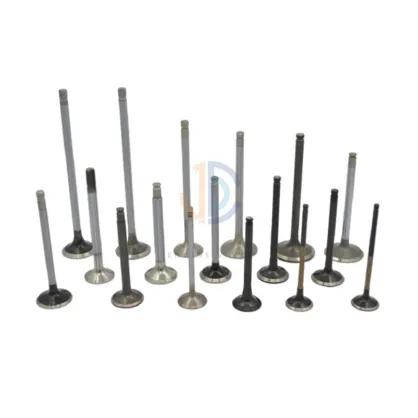What Causes an Engine Valve to Break?
Engine valves , though small and seemingly insignificant, play a crucial role in the smooth functioning of a vehicle. They are integral components that control the flow of air and fuel in and out of the engine cylinders, impacting overall performance. However, what happens when these vital valves break? In this article, we delve into the intricacies of engine valve breakage, exploring the causes and shedding light on this often perplexing issue.

Understanding Engine Valves
Before we dive into the causes of engine valve breakage, let's establish a foundational understanding of what engine valves are and their significance. Engine valves are mechanical devices that regulate the intake of fuel and air and the expulsion of exhaust gases. Ensuring proper combustion and power generation, these valves are pivotal to a vehicle's optimal operation.
Common Causes of Engine Valve Breakage
Manufacturing Defects
One of the primary reasons for engine valve breakage lies in manufacturing defects. When valves are crafted from substandard materials or undergo inadequate quality control, their structural integrity is compromised. This can result in premature failure and breakage, leaving vehicle owners puzzled about the sudden malfunction.
Overheating
Excessive heat is the nemesis of engine components, and valves are no exception. High temperatures, often caused by prolonged operation under strenuous conditions or inadequate cooling systems, can lead to the degradation of valve materials. This degradation weakens the valve structure, making it susceptible to fractures and breaks.
Poor Maintenance
Neglecting routine maintenance is a silent but potent contributor to engine valve issues. When valves are not regularly inspected, cleaned, and adjusted, carbon deposits can accumulate, affecting their movement and overall performance. This neglect can eventually lead to valve breakage, leaving vehicle owners facing unexpected repair costs.
Impact of High RPMs
Another factor worth exploring is the impact of high engine revolutions per minute (RPMs) on valve health. When an engine operates at elevated RPMs for extended periods, the valves experience increased stress and strain. This constant mechanical stress can lead to fatigue and eventual failure, causing the valves to break.
Addressing Reader Concerns
Understanding the causes of engine valve breakage is vital, but it's equally important to address the concerns of readers who may be facing this issue. If you suspect valve problems in your vehicle, it's recommended to consult a qualified mechanic promptly. Professional inspection and timely maintenance can help identify potential issues before they escalate, ensuring the longevity of your engine valves.
Conclusion
In the intricate world of engines, the causes of valve breakage are multifaceted. Whether it's manufacturing defects, overheating, poor maintenance, or the impact of high RPMs, each factor contributes to the vulnerability of engine valves. By staying vigilant, prioritizing regular maintenance, and seeking professional advice when needed, vehicle owners can mitigate the risks associated with engine valve breakage.
110
0
0


Comments
All Comments (0)